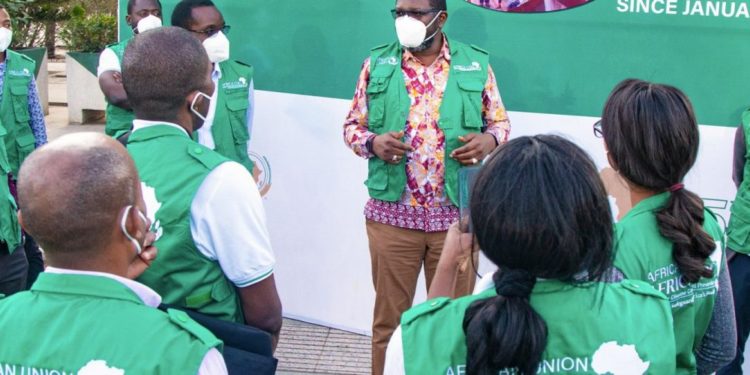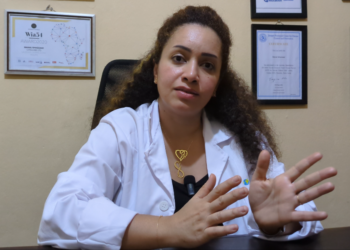By Kemo Cham
The Africa Centers for Disease Control and Prevention (Africa CDC) says it will move some of its experts from Sierra Leone to neighbouring Liberia which is experiencing persistent rise in cases of the Mpox virus disease.
Sierra Leone, once the main driver of new cases in the epidemic on the continent, has gone for 23 days, as at Thursday November 20th, without recording any new confirmed case. Prof. Yap Boum, deputy head of the Incident Management Support Team (IMST) at Africa CDC, said Sierra Leone’s experience dealing with the outbreak is important to support its neighbour which has seen both confirmed cases and suspected cases increased in the last six weeks.
Liberia, Ghana and Kenya remain the three countries of concern in the ongoing epidemic on the continent, according to data shared by the continental public health agency. But it is Liberia that is the most affected among the three, having seen percent increase in new cases and deaths in the last six weeks. Of particular concern is the high positivity rate, which, according to Prof. Yap, points to a weak surveillance system.
“We can see 70 percent of the positive cases are the ones that we see at the health facilities, which means that we still don’t know what is happening in the communities, and that is why it will be critical to have active surveillance in Montserrado and Nimba,” he said at the agency’s weekly press briefing on Thursday.
Liberia has recorded a total of 1,352 cumulative confirmed cases, with six deaths, since the beginning of 2024. All 15 counties (districts) of the country are affected. Montserrado and Nimba account for 77 percent of the total confirmed cases, according to the Africa CDC data.
The Africa CDC experts will also provide support for Liberia in the areas of vaccination, case management and laboratory testing. Some 57 percent of confirmed cases in the country are presently isolated at home, which Africa CDC sees as problematic. Liberia is also expecting 20, 000 doses of vaccine next week, said Prof. Yap.
Mpox, previously known as monkeypox, is a virus that causes fevers, headaches, and painful boils on the skin. It can spread from infected animals to humans, and from person to person through close physical contact, including sexual intercourse.
The current epidemic in Africa began in the Democratic Republic of the Congo (DRC) in September 2023 and soon escalated and spread to other African nations, prompting both the Africa CDC and WHO to declare it public health emergency of continental and international concerns, respectively.
Africa has recorded 59,407 cumulative confirmed cases and 288 confirmed deaths from 2024 to 2025. But the last six weeks ending Week 45 have witnessed a progressive decline in both confirmed and suspected cases. A total of 18 countries are currently transmitting cases. DRC is at the top with over 21, 000 cases, followed by Uganda with nearly 7,000 cases and Sierra Leone at third place with over 5, 000 cases. Liberia is ranked 5th, behind Burundi, with 1,289 confirmed cases.
“Liberia remains the main driver of recent increases,” said the Africa CDC in its presentation.
“It is quite concerning and we are engaging the country to better understand and also to support on the vaccination,” said Prof. Yap.
Prof. Yap stressed that Sierra Leone serves as a good example of how countries can respond to the epidemic to break the chain of transmission.
Sierra Leone’s outbreak started with just two cases in January. By May, at the peak of the outbreak, it had had close to 2000 active cases in every districts. In the last 10 months, the country has recorded 5, 442 confirmed cases.
Sierra Leone’s Minister of Health Dr Austin Demby, appeared as a special guest at the Africa CDC’s press briefing last week, when he highlighted how the country managed to go to zero in the last 90 days. Dr Demby revealed that nine out of the 16 districts have not recorded any new cases for over 42 days.
“So it gives us real hope that we are on the right trajectory, we are moving in the right direction,” he said.
“For me, it is a testament to country ownership, country leadership in creating a (…) partnership with government leaders, with traditional leaders, with civil society, with our development partners and our technical partners, especially Africa CDC,” he said.






















